Herman D. Hughes Distinguished Lecture Series
The Ray P. Authement College of Sciences and the College of Engineering are pleased to host The Herman D. Hughes Distinguished Lecture Series. Each spring we will feature a seminar by an eminent scientist who employs interdisciplinary strategies to solve complex problems associated in STEM disciplines. The focus of the Herman Hughes Distinguished Lecture Series will be to foster interdisciplinary research between the departments of the College of Sciences and the College of Engineering. In addition, the lectures will enrich our students, faculty, college, and university. Interested parties from outside the college are encouraged to participate. Please join us!
Spring 2023
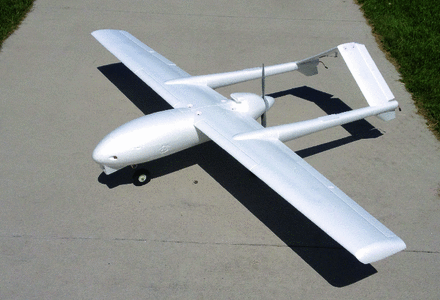
NextGen UAVs: Challenges and Opportunities
Dr. Kimon P. Valavanis,
John Evans Professor
D. F. Ritchie School of Engineering and Computer Science
University of Denver, Denver, Colorado
3:30 - 4:30
14 March 2023
Oliver Hall auditorium (room 112)
4:30 - 5:15
Reception -- meet and greet Dr. Valavanis
Oliver Hall Lobby
Abstract
Unmanned Aerial Vehicles (UAVs) or Unmanned Aircraft Systems (UAS) are generally highly complex nonlinear systems. When considering NextGen UAVs/UAS, which include hybrid and reconfigurable designs, morphing wing designs, and Circulation Control Wing (CCW) based designs, such systems are also time-varying systems. Modeling and controller design for such systems, which are also subjected to unstructured uncertainties, goes beyond known conventional techniques. Reconfiguration, morphism, and CCWs introduce changes in the aerodynamic coefficients that are difficult to determine using strict mathematical formulas. Systematic approaches are required for (the non-constant value) parameter identification, followed by controller designs that are based on a family of admissible models and not on an a-priori-defined nominal model.
This lecture considers a NextGen CCW-based fixed-wing aircraft, called UC2AV, and introduces a comprehensive approach to modeling, identification, and controller design. The proposed controller is a novel, robust nonlinear controller for the longitudinal/lateral flight dynamics of the UC2AV, consisting of a dynamic inversion inner-loop and a μ-synthesis outer-loop controller. Results demonstrate the efficacy of the proposed modeling and control schemes and the ability of the UC2AV to adapt to challenging CC-on-demand scenarios. The proposed controller design may be generalized and applied to a family of nonlinear systems with unstructured uncertainties and time-varying parameters, going beyond addressing uncertainty challenges regarding the aircraft’s aerodynamic coefficients.
Then, multi-rotor UAVs are considered, and modeling challenges are tackled to account for a plethora of disturbances that may affect performance. A benchmark framework is derived for controller implementation and comparison via simulations, simulated experiments, and actual flight tests.
About the speaker
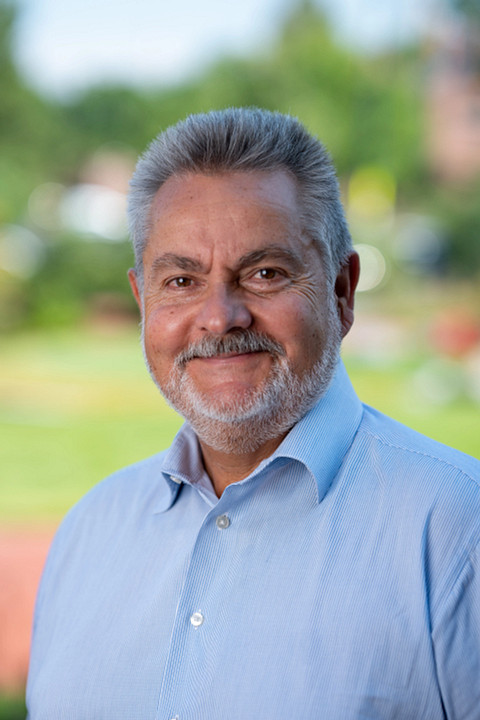
Dr. Kimon P. Valavanis is John Evans Professor, Department of Electrical and Computer Engineering, Daniel Felix Ritchie School of Engineering and Computer Science, University of Denver. He is a Guest Professor in the Faculty of Electrical Engineering and Computing, University of Zagreb, Croatia. He held Visiting Appointments at Politecnico di Torino, Dipartimento di Ingegneria Meccanica e Aerospaziale, DIMEAS, and he was Professeur Invité, Université de Lorraine - Polytech Nancy, in France.
Dr. Valavanis' research interests span Unmanned Systems, Distributed Intelligence Systems, Robotics, and Automation. He has published more than 450 book chapters, technical journal articles, transaction papers, referred conference papers, and invited papers. He has authored/co-authored/edited 19 books. He has graduated 38 Ph.D. students and more than 100 M.Sc. students.
Dr. Valavanis served as Editor-in-Chief of the Robotics and Automation Magazine from 1996-2005, and since 2006, of the Journal of Intelligent and Robotic Systems, Springer. He also has served as co-chair of the Aerial Robotics and Unmanned Aerial Vehicles Technical Committee since 2008. He founded the International Conference on Unmanned Aircraft Systems, which he runs annually.
Dr. Valavanis was a Distinguished Speaker in the IEEE Robotics and Automation Society, a Senior Member of IEEE, a Fellow of the American Association for the Advancement of Science, a Fellow of the U.K. Institute of Measurement and Control, and a Technical Expert of the NATO Science and Technology Organization (STO). He served as NATO Technical Evaluator for the AVT-353 Workshop on ‘Artificial Intelligence in the Cockpit for UAVs’ that was held in Torino, Italy, in April 2022. In August of 2021, he was appointed to the NATO STO Technical Team of SAS-ET-EX on “Integration of Unmanned Systems into Operational Units” for the duration of the Program of Work. He is also a Fulbright Scholar (Senior Lecturing and Research Award).
Spring 2019
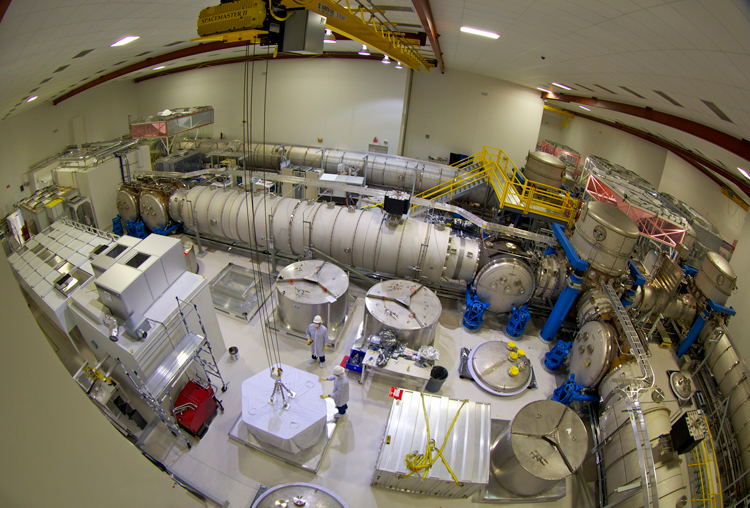
Black Holes and Gravitational Wave Detection with LIGO
Thomas Corbitt, PhD
Louisiana State University
Department of Physics & Astronomy
3:45 - 5:00
26 March 2019
Oliver Hall auditorium (room 112)
3:00 - 3:45
Reception -- meet and greet Dr. Corbitt
Oliver Hall Lobby
Abstract
In 1915, Albert Einstein published his theory of general relativity (GR), which relates gravity to the curvature of spacetime. In 1916, he predicted the existence of gravitational waves, or ripples in the fabric of spacetime, as a consequence of GR, but expected them to be too small to ever be detected. On September 14, 2015, LIGO (Laser Interferometric Gravitational-wave Observatory) detected a gravitational wave signal that originated from the coalescence of two merging black holes approximately 1.3 billion light years away. This detection confirmed Einstein’s prediction, and it marked the beginning of a new branch of astronomy. Since then, a number of gravitational waves have been detected, including some with the VIRGO collaboration, and one event with an electromagnetic counterpart. I will discuss these detections, along with the history and science behind the detectors, and describe what the future of gravitational wave astronomy may include.
About the speaker
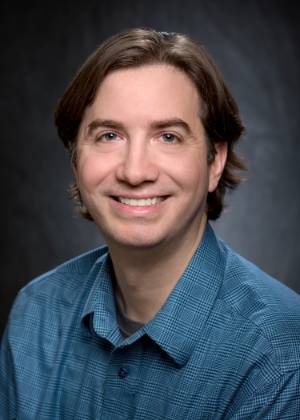
Thomas Corbitt first began working on gravitational wave detection in 2001 at the LIGO Hanford Observatory, while he was an undergraduate student at the Georgia Institute of Technology. After receiving his BS in Physics, he went on to receive his PhD from the Massachusetts Institute of Technology in 2008 under the advisement of Nergis Mavalvala, where he performed research on reducing quantum noise effects in LIGO. Corbitt joined the faculty of Louisiana State University in 2011, where he has studied experimental quantum back action noise and quantum optomechanics.
Spring 2018
Re-Thinking STEM Outreach and Engagement:
Building STEM Out of School Time Capacity through Building Community
Calvin Mackie, Ph.D.
CEO, Channel ZerO Group, LLC
Senior Vice-President, Golden Leaf Energy, LLC
Executive Director, STEM NOLA
3:45 - 5:00
10 April 2018
Oliver Hall auditorium (room 112)
3:15 - 3:45
Reception -- meet and greet Dr. Mackie
Oliver Hall Lobby
About the speaker
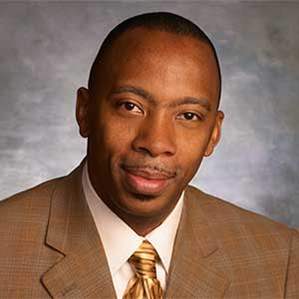
Calvin Mackie, Ph.D., is an award winning mentor, inventor, author, former engineering professor, internationally renowned speaker, and successful entrepreneur. His message as a mentor, author, speaker, and entrepreneur continues to transcend race, gender, ethnicity, religion, and time.
A lifelong resident of New Orleans, Dr. Mackie graduated from high school with low test scores requiring him to undertake special remedial classes at Morehouse College. He completed his degree in Mathematics at Morehouse in 1990, graduating Magna Cum Laude and a member of the prestigious Phi Beta Kappa National Honor Society. He was simultaneously awarded a Bachelors degree in Mechanical Engineering from Georgia Tech, where he subsequently earned his Master's and Ph.D in Mechanical Engineering in 1996.
While pursuing his doctorate degree, he served as an instructor of mathematics at Morehouse College. Following graduation he joined the faculty at Tulane University, where he pursued research related to heat transfer, fluid dynamics, energy efficiency, and renewable energy. In 2002, he was promoted to Associate Professor with tenure. Mackie's eleven year academic career ended in June 2007, when Tulane University disbanded the engineering school in response to financial hardship induced by Hurricane Katrina. During 2004-2005 academic year, Mackie was a visiting professor in the Department of Chemical Engineering at the University of Michigan, where he performed research on fuel cells. He enjoyed a respected academic career, before refocusing his career on entrepreneurship, consulting and professional speaking.
Mackie has won numerous awards including the 2003 Presidential Award for Excellence in Science, Mathematics and Engineering Mentoring in a White House ceremony, the 2002 Black Engineer of the Year Award for College Level Educator, the 2002 New Orleans Data News Weekly Trailblazer Award, and the Pi Tau Sigma/ASME Excellence in Teaching Award in Mechanical Engineering for 2000 and 2002. Always harboring a passion for engineering, Mackie was awarded a patent on a device to retrofit luggage stowbins on 737 and 757 Boeing commercial airliners. Most recently, Dr. Mackie was awarded the highest honor bestowed upon a graduate of Morehouse College, A Candle in the Dark's "Bennie" Award for his many academic, professional, and entrepreneurial achievements, as well as receiving the United Negro College Fund's (UNCF) prestigious Legacy Award for his accomplishments in Leadership, Education, and Mentoring by encouraging students and/or colleagues to realize their potential, and help others to achieve their best.
Following the catastrophic Hurricanes Katrina and Rita in 2005, then Governor Kathleen Blanco appointed Dr. Mackie to the thirty-three member board of the Louisiana Recovery Authority (LRA), the guiding agency to lead the state's rebuilding efforts. In 2009, then Lt. Governor Mitch Landrieu appointed Dr. Mackie to the Louisiana Council on the Social Status of Black Boys and Black Men. The board elected Mackie to chair position where he is led the state's effort to create policy and programs to positively impact the quality of life for black males and families in the state of Louisiana. Most recently, Governor John Bel Edwards appointed Mackie to the Coastal Protection and Restoration Authority (CPRA). The CPRA was established as the single state entity with authority to articulate a clear statement of priorities and to focus development and implementation efforts to achieve comprehensive coastal protection for Louisiana.
Mackie is currently a partner and Senior Vice-President of Golden Leaf Energy (GLE). GLE is an innovative, renewable energy company that manufactures lubricants and methyl esters (biodiesel). Utilizing an integrated product development platform and industry leading production technology, GLE manufacturers and distributes renewable lubricants for drilling applications. Golden Leaf Energy also distributes quality methyl esters for a variety of other applications. GLE owns and operates a multi-feedstock biorefinery in located in southeast Louisiana.
Mackie continues in his role as President and CEO of the Channel ZerO Group LLC, an educational and professional development consulting company he co-founded in 1992. He has presented to numerous civic and educational institutions, government entities, professional association, and businesses of every size and industrial focus. Through his travels and online mentoring presence, Mackie reaches millions of students and professionals annually.
Most recently, Dr. Mackie founded STEM NOLA is a non-profit organization founded to expose, inspire and engage communities about the opportunities in Science, Technology, Engineering and Mathematics (STEM). STEM NOLA designs and delivers activities, programs and events that bring inspiration, motivation and training to all STEM stakeholders (especially students) across entire communities. Since December 2013, STEM NOLA has engaged over 13,000 most under-served K-12 New Orleans students in hands-on STEM project based activities. Over 80% of participants receive free or reduce lunch vouchers and thus free admission, and 45% have been females.
Inaugural Lecture - Spring 2017
Reflections: Research Activities Involving High-Speed and Wireless Networks
Herman D. Hughes, Professor Emeritus of Computer Science & Engineering
Michigan State University
3:30 - 5:00
14 February 2017
Oliver Hall auditorium (room 112)
Abstract
A brief description of the speaker's journey as a student, attending HBCU's to becoming a professor of computer science and engineering will be highlighted. Some emphasis will be placed on the Wireless and High-Speed research Laboratory (spearheaded by the Speaker) and its involvement in several activities. However, the primary focus of the talk will be centered around prior research on quality-of-service issues related to the transport of video traffic over ATM (autonomous transfer mode) Networks, Wireless ATM Networks, Wireless Ad Hoc Networks, and Network Workshops for Computer Science Professors from across the U.S.
About the speaker
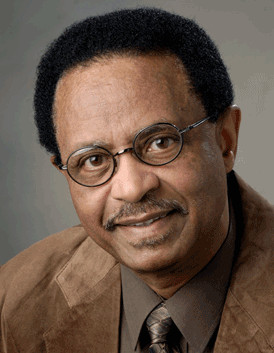 Dr. Herman D. Hughes (Doctor of Philosophy, Computer Science, 1973). Professor Emeritus at Michigan State University (Department of Computer Science and Engineering).
Dr. Herman D. Hughes (Doctor of Philosophy, Computer Science, 1973). Professor Emeritus at Michigan State University (Department of Computer Science and Engineering).
Dr. Herman D. Hughes, received a B.S. degree in Mathematics from Stillman College, a M.A. degree in Chemistry from Tuskegee University, and a Ph.D. in Computer Science from the University of Louisiana at Lafayette. He began his academic career as a high school mathematics teacher in 1959, followed by faculty positions in mathematics at Tuskegee University and Grambling State University. During his academic training, Professor Hughes worked in the summer months both in industry and government (IBM, American Oil Company, Dow Chemical, Advanced Avionics Research Lab). In 1973, Dr. Hughes joined the faculty of Michigan State University (MSU) as an Assistant Professor in the Department of Computer Science and Engineering. He climbed the academic ranks at MSU to become a Full Professor in 1984 and Professor Emeritus in 2005. While at MSU he also served as Assistant Dean of the Graduate School from 1986 through 1991.
Dr. Hughes became a national and international leader in the area of network traffic management and modeling with respect to wireless and high speed networks. He designed several schemes for addressing quality-of-service issues central to recent network technologies, wireless ad hoc networks and Asynchronous Transfer Mode (ATM). The results of his research provided important insight for defining some key algorithms and parameters used by researchers for studying network traffic. Dr. Hughes' work is published in numerous journals and has been presented at the most prestigious conferences. He served as a National ACM lecturer, and was voted Distinguished Alumnus both by Stillman College and the University of Louisiana at Lafayette. Professor Hughes' exemplary contributions to research, teaching and service earned him the MSU "Distinguished Faculty Award" in 2000.
Dr. Hughes' most recent research emphasis is quality-of-service (QoS) issues in mobile ad-hoc networks (MANET). Specifically, he has developed and published several techniques and routing schemes designed to enhance QoS. From this work, he upgraded the high-speed networks and performances (HSNP) research lab to a modern wireless communication and high speed networks (WCHSN) lab. After his retirement from MSU Professor Hughes relocated to Georgia. He was appointed an Adjunct Professor in the Department of Electrical and Computer Engineering at the Georgia Institute of Technology where he is involved in research and consulting. He is affiliated with Georgia Centers for Advanced Telecommunications Technology, housed in the School of Electrical and Computer Engineering.
